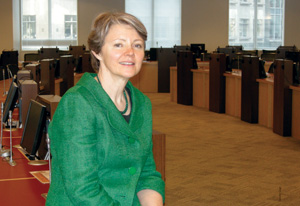Hiring freezes cause fear among young scientists, but there is a silver lining.. . (read more in Nature).
Navigating the Postdoctoral Job Market
The current economic climate paints a rather bleak picture for job seekers, especially in the postdoctoral realm. The downturn has not only heightened competition but also created a precarious landscape for young scientists. With budgets shrinking, the already competitive postdoctoral job market has become even more challenging. As an educational consultant specializing in workforce development, I’ve seen the impact firsthand: job openings evaporate, and once-stable opportunities become uncertain.
Marc Kastner, the dean of the School of Science at MIT, shares a common concern, noting the dramatic and rapid changes in the job market. The situation is worrisome, with hiring freezes becoming more frequent. Roger Davies from the University of Oxford highlights the uncertainty, suggesting that the true extent of the job market contraction will only be known in the coming months. This uncertainty necessitates a strategic approach to job hunting and career planning.
Exploring New Horizons
Despite the grim outlook, not all is lost. There are sectors where opportunities still exist, and sometimes, the key is to look beyond traditional paths. The European Space Agency, for instance, has maintained its budget, offering some stability within the space science sector. This serves as a reminder that certain areas continue to invest in talent and research, even in tough times.
The challenge many postdocs face is considering a shift, either within their scientific domain or beyond it. Clare Jones, a careers adviser, suggests that this might not be the best time to switch fields completely. Instead, exploring adjacent areas or roles that can leverage one’s existing skills could be a more prudent strategy. With more candidates, including those with MBAs, entering the job market, the competition is intensifying. Yet, for those who persevere, like the virology postdoc who explored consulting roles, opportunities can emerge.
Creative job searching, as Jones recommends, involves leveraging networks and keeping an eye on internal opportunities. Transitioning into roles like scientific management or business development within one’s current institution can also offer new career avenues. European companies, for example, are still in need of qualified scientists for consultancy roles, highlighting the demand for expertise in niche areas.
In these turbulent times, extending current postdoctoral positions or seeking extensions can provide a temporary safe haven, allowing for a more deliberate and focused job search. Ryan Wheeler from the Scripps Research Institute advises using any additional time to reflect on personal career goals and values, which can help in navigating the job market more effectively.
The economic downturn has undoubtedly tightened the job market, but it also compels us to broaden our horizons and be more strategic in our career planning. As daunting as it may seem, understanding our strengths and interests, coupled with a proactive and creative job search strategy, can open doors to unexpected opportunities. The journey might be longer and more challenging, but with resilience and adaptability, we can navigate these uncertain times and find fulfilling career paths.







